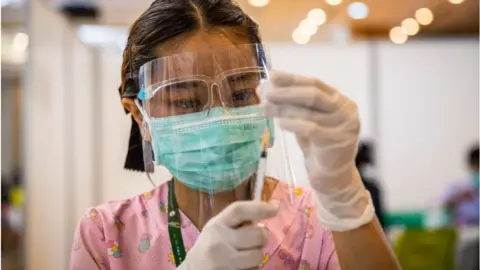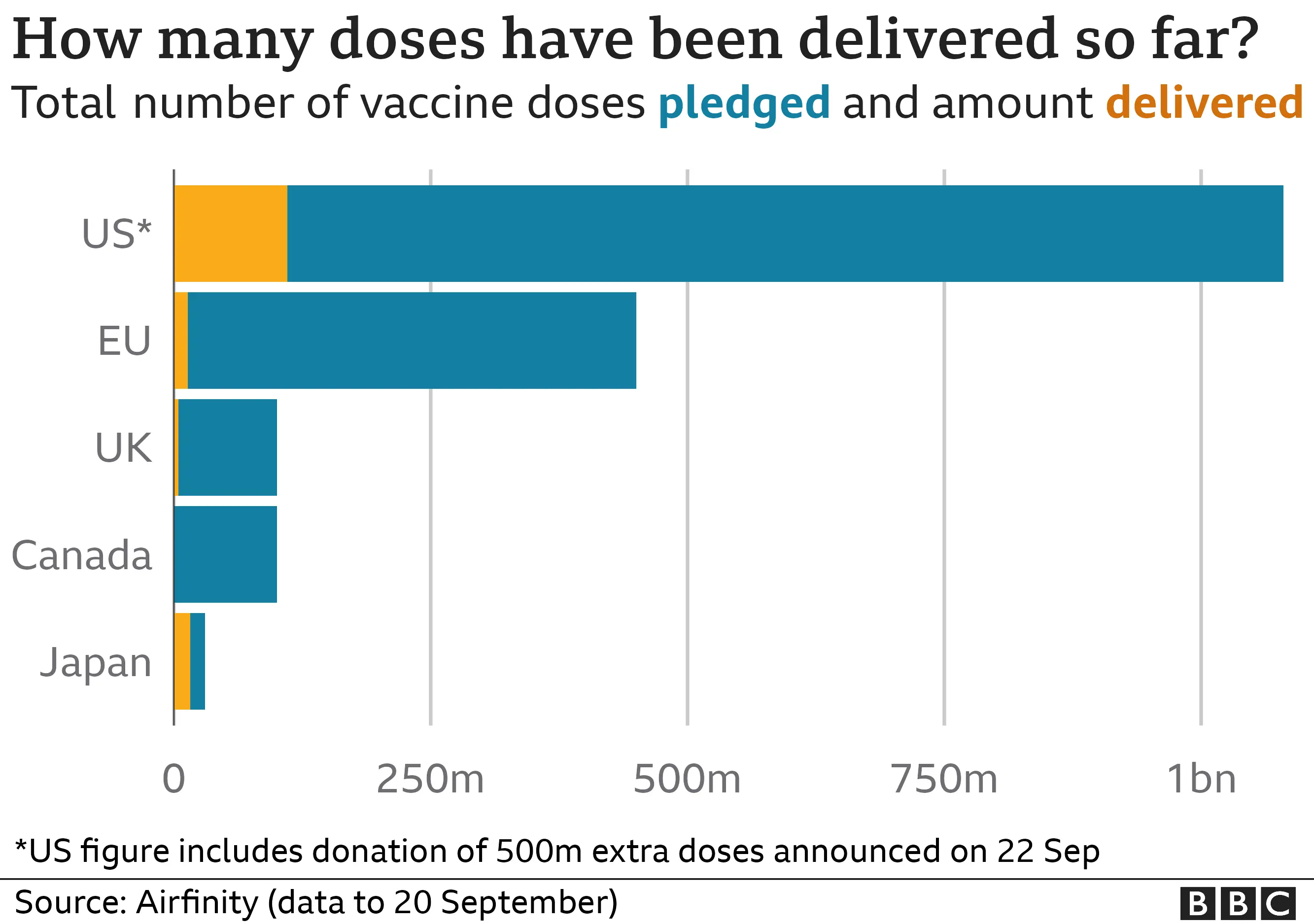President Biden pledges 500m more vaccine doses to developing world
 Getty Images
Getty ImagesThe US is to donate 500 million more doses of the Pfizer vaccine to developing nations from next year.
President Joe Biden made the pledge at a virtual Covid-19 summit on the sidelines of the UN General Assembly, promising an "arsenal of vaccines".
The additional jabs will see the total US commitment on vaccine sharing exceed one billion jabs.
Experts say some 11 billion doses are required to vaccinate at least 70% of the global population.
The World Health Organisation has set a minimum target of 40% vaccine coverage in every country by the end of 2021.
But the goal is unlikely to be met.
While many high-income countries have now given at least one shot to more than half their populations, only 2% of people in low-income countries have had their first dose, according to data from the University of Oxford.

Global vaccine supply is still lagging
Analysis by Stephanie Hegarty, BBC population correspondent
It's a big pledge but it'll be met with a fair share of scepticism from countries still waiting to vaccinate even 2% of their population.
The US had already pledged 580m doses but delivered only 160m of those so far.
So what's different now? Well, global production has picked up in the past few months and there are doses available.
Rich countries could have 1.2bn spare doses by the end of the year, even if they run booster campaigns, according to science analytics firm Airfinity. 241m of those could go to waste if they're not donated. But these need to be sent very soon.
Covax, the WHO-backed scheme to help distribute vaccines fairly, has told the BBC that too many of the donations it's receiving have come in small quantities, at the last minute and with little time left before they expire.
That makes their job of getting them to where they are needed very hard. If Biden want to meet this ambitious goal of vaccinating the world by this time next year, that will have to change.

The White House's Covid summit comes as research shows rich countries are still holding surpluses of vaccines, many of which could soon be thrown out.
In June, members of the G7 - Canada, France, Germany, Italy, Japan, the UK and the US - pledged to donate one billion doses to poor countries over the next year.
President Biden pledged 580m at the time, of which the US has delivered only 160m so far.

The donated vaccines are routed through Covax, the global scheme supported by the WHO to get doses where they're needed most.
Covax purchases and then sells vaccines at low-cost to middle income countries and donates to poor countries.
In the US - where more than 76% of adults have received at least one dose - criticism that the country is doing too little to help the rest of the world has grown.
On Friday, a panel advising the US Food and Drug Administration (FDA) recommended booster shots - third doses - of the Pfizer vaccine for people 65 and over.
The WHO has previously called on wealthier nations to hold off on providing boosters until vaccination rates go up in lesser developed countries.
Last week, in a letter to Mr Biden, eight lawmakers of his own party wrote: "Clearly, there is an inequitable distribution of Covid-19 vaccine doses, and it is getting worse."
